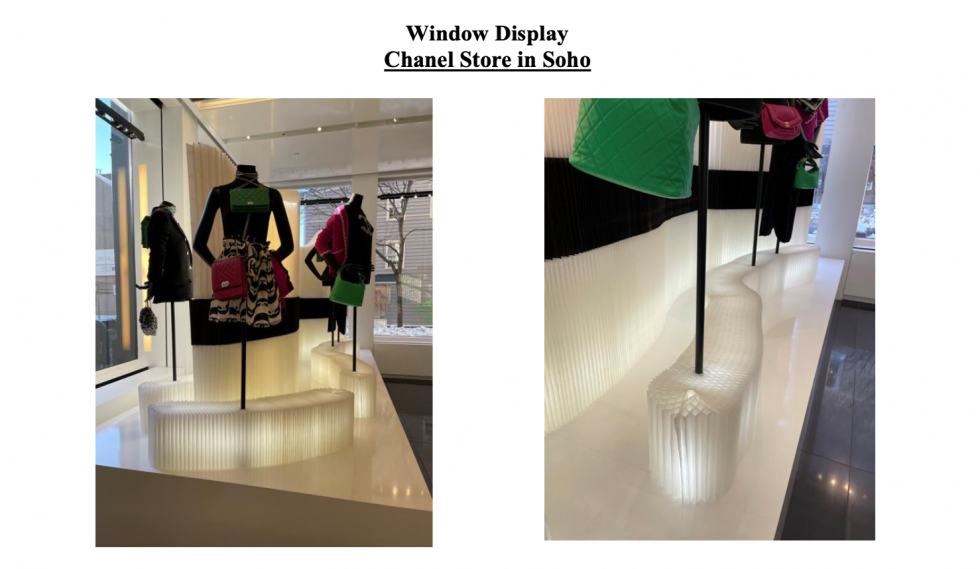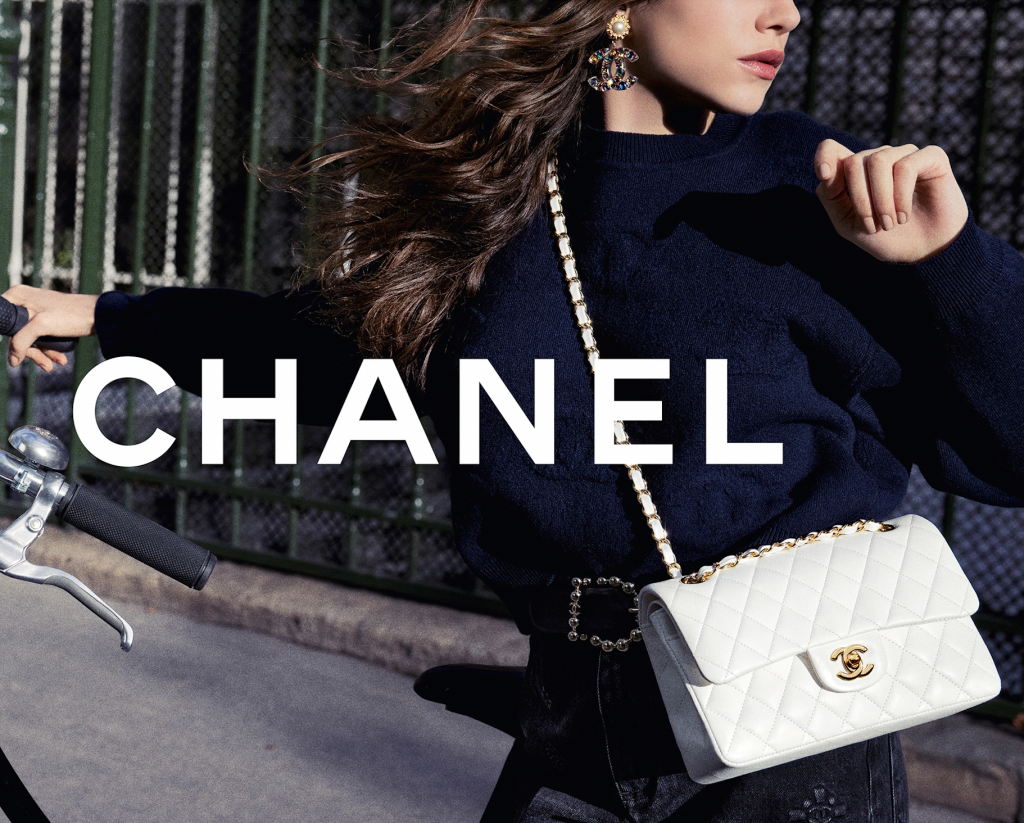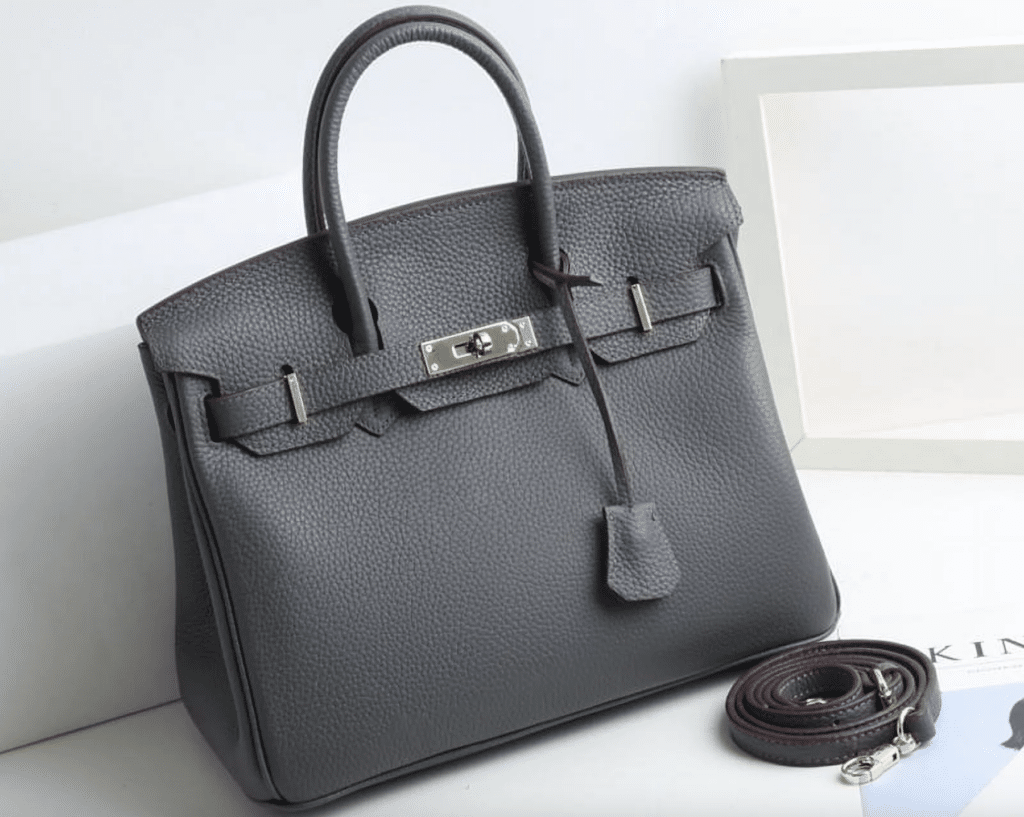After landing on the receiving end of a patent infringement lawsuit in February for allegedly copying Molo Design’s interior décor creations for its stores after ordering samples of those products from the Vancouver-based design studio, the famed fashion brand is pushing back. In the answer that it filed in a New York federal court this month, Chanel has taken issue with the bulk of the claims set out against it by Molo, denying, among other things, that “it used materials that copied Molo’s softwall + softblock products,” that “it used or authorized infringing copies of Molo’s products,” and ultimately, that it infringed any of the patents that Molo maintains for its accordion-assembled paper creations by way of the similar designs that it used.
The case got its start in February when Molo filed suit, claiming that on the heels of a Chanel executive “order[ing] samples of Molo’s softwall + softblock products” and after two different Chanel-affiliated display companies corresponded with Molo about its products (and received “detailed information regarding its softwall + softblock products,” as well as “technical specification, certifications, and use guides” for the products), it learned that the windows and in-store displays in Chanel stories in various “cities and countries around the world that are using products that copy Molo’s patented softwall + softblock products.” Setting forth claims of patent infringement, Molo alleges that the reproductions that were used by Chanel – including its Upper East Side, Midtown, and Soho, New York outposts – infringe “one or more claims of [its] patents for its softwall + softblock products,” namely four utility patents that cover “flexible furniture systems” complete with “a core formed from a plurality of laminar panels of a flaccid material that are inter-connected to provide an expandable structure upon movement of the panels away from each other.”
“Chanel and [its partners] had knowledge of Molo’s [patents],” the company argues, “and know that their use of reproduction softwalls, which are not authorized by Molo, constituted infringement” of its patents. Alternatively, Molo claims that both Chanel and Substrate “were willfully blind regarding their infringement” of the patents, making their conduct “egregious, willful, wanton, malicious, in bad faith, deliberate, consciously wrongful, flagrant, and characteristic of a pirate.” All the while, Molo alleges that “Substrate and InLuce were agents for Chanel and acted within the scope of their agency, or otherwise acted at Chanel’s direction and on Chanel’s behalf.”
Despite Molo’s arguments, Chanel asserts in its answer that it has not infringed Molo’s patents, and “denies that any alleged infringement has been willful, deliberate, or in reckless disregard of Molo’s patent rights.” In addition to setting out an array of affirmative defenses, including failure to state a claim, waiver, estoppel, and acquiescence, limitation on damages, and invalidity, among others, Chanel also sets out a number of counterclaims, in which it asks the court to declare that it has not infringed the four patents that Molo points to in its complaint, namely four utility patents that cover “flexible furniture systems” complete with “a core formed from a plurality of laminar panels of a flaccid material that are inter-connected to provide an expandable structure upon movement of the panels away from each other.”

Chanel argues that it “is entitled to a declaratory judgment … that it has not infringed in any manner any claim of [Molo’s] patent[s],” and states that such a declaration would “resolve the legal and factual questions raised by Molo and to afford relief from the uncertainty and controversy that Molo’s accusations have precipitated.”
Raising the stakes higher, Chanel is also seeking a court order invalidating Molo four patents, arguing that each of the four patents is “invalid for failure to satisfy one or more of the statutory requirements that a claimed invention must be “new, useful, and non-obvious” as a condition for patentability. Beyond that, Chanel claims that Molo’s patents fail to meet the specification requirement set out section 112, “and/or the doctrine of non-statutory double patenting,” which refers to a “judicially-created doctrine intended to prevent an improper time-wise extension of a patent right by prohibiting the issuance to a single inventor of claims in a second patent which are not “patentably distinct” from the claims of a first patent.”
Finally, Chanel has requested that the court dismiss Molo’s complaint in its entirety and enter judgment in its favor, while also declaring this “an exceptional case,” and awarding Chanel “its costs (including expert fees), expenses, disbursements, and attorneys’ fees incurred in this action.”
The Molo case come amid a recent loss for Chanel when the European Union General Court siding with Chinese tech titan Huawei in a nearly 4-year-old matterover “lookalike” logos. In a decision earlier this month, a panel of judges for EU General Court held that Chanel cannot block Huawei’s quest to register a trademark with the European Union Intellectual Property Office (“EUIPO”) for use on computer hardware and software programs on the basis that the mark is too similar to its famed double “C” logo, as the respective parties’ marks “must be compared as applied for and registered,” and “without altering their orientation,” the parties’ figurative marks “are not similar.”
While EU trademark experts say that the court’s decision is “in line with case law and the EUIPO Guidelines,” Chanel still has the opportunity to appeal the decision to the EU’s highest court, the Court of Justice. Although, it is not yet clear whether the brand will opt to do so.
The case is Molo Design, Ltd. v. Chanel, Inc., 1:21-cv-01578 (SDNY).
Updated
May 2, 2022
On February 4, 2022, Chanel moved to stay the case pending resolution of inter partes reviews by the PTAB. (Chanel filed a petition with the PTAB for inter partes review claiming invalidity of Molo’s ‘366 , ‘666 , 161, and ‘134 patents.) The court granted Chanel’s motion to stay in an order on May 2, 2022.











